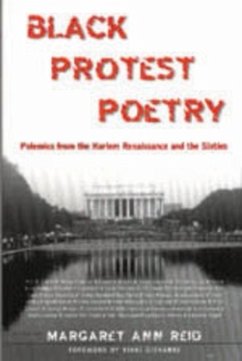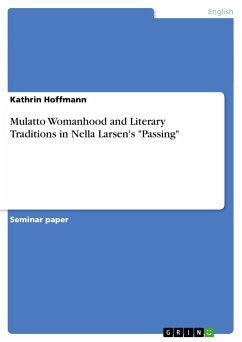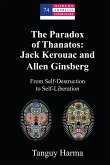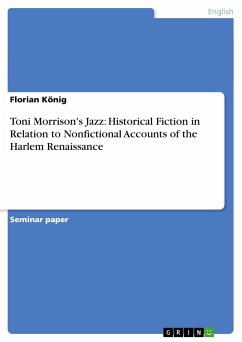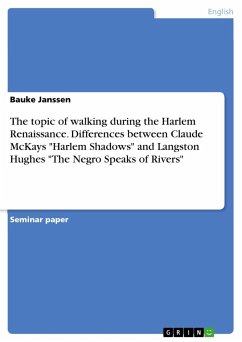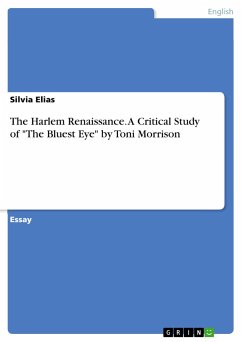Black poets of the Harlem Renaissance (1920-1929) relied heavily upon traditional rhetorical devices, specifically irony and paradox. In contrast, their counterparts of the sixties adopted a more radical approach, employing instead street idiom and other modes of Black discourse. While the poets' strategies of the two periods differ, one element remained constant - the theme of protest. It is this similarity in purpose that marks the poetry of the Harlem Renaissance as a precursor of the revolutionary poetry of the sixties.
«I thoroughly enjoyed reading this insightful and skillfully woven study of the rhetorical strategies of the protest poetry from the Harlem Renaissance and the revolutionary sixties. As a product of the revolutionary sixties, I think Dr. Margaret Reid makes excellent commentaries and comparisons that shed new literary light on both dynamic periods.» (Carolyn Rodgers, Poet, Teacher)
«Margaret Ann Reid's book resonates with brilliance and scholarship. She offers a vision of Black literature that is vital to our understanding of the Black Arts Movement and beyond. A major study.» (Sonia Sanchez, Poet, Essayist, Teacher, Activist)
«Dr. Reid's book is structured as a quintessential poetry/literature course textbook, which is destined to become a standard. The context for understanding the words of poetry on their paper is pointedly, excellently established. The historical perspectives provide a sure footing for students of black literature (and others who are interested) from which to see the chronicle of these movements which ebb and then flow with unremitting force.» (Johari Amini, Poet, Teacher)
«Margaret Ann Reid's book resonates with brilliance and scholarship. She offers a vision of Black literature that is vital to our understanding of the Black Arts Movement and beyond. A major study.» (Sonia Sanchez, Poet, Essayist, Teacher, Activist)
«Dr. Reid's book is structured as a quintessential poetry/literature course textbook, which is destined to become a standard. The context for understanding the words of poetry on their paper is pointedly, excellently established. The historical perspectives provide a sure footing for students of black literature (and others who are interested) from which to see the chronicle of these movements which ebb and then flow with unremitting force.» (Johari Amini, Poet, Teacher)

